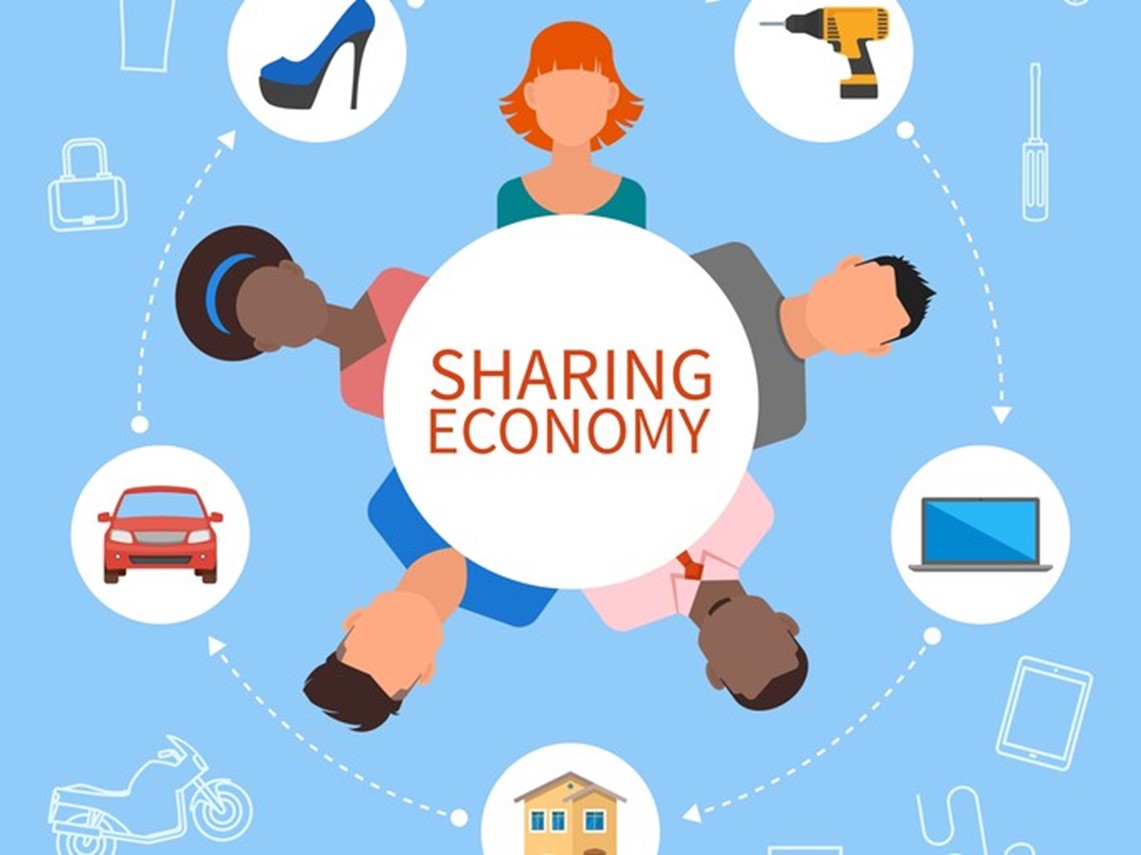The rise of platforms like Uber, Airbnb, Turo, and TaskRabbit has given birth to the sharing economy—a model where individuals can rent out assets or offer services directly to others. While this new economy brings flexibility and income opportunities, it also creates new questions about risk and protection.
In this guide, we break down how insurance fits into the sharing economy, what coverage you may already have, what you may need, and how to avoid being underinsured while participating in this growing space.
What Is the Sharing Economy?
The sharing economy refers to peer-to-peer platforms that allow individuals to share access to goods and services. Instead of buying or owning everything, people can now borrow or rent what they need—from homes and cars to power tools and even pet sitting.
Common examples include:
-
Uber and Lyft for ridesharing
-
Airbnb and Vrbo for short-term rentals
-
Turo for car-sharing
-
Fiverr and TaskRabbit for freelance gigs
While convenient and profitable, these platforms blur the lines between personal and commercial use—especially when it comes to insurance.
Why Traditional Insurance May Not Be Enough
Most personal insurance policies (like auto, home, or renters) are not designed to cover commercial activity. That means if you’re using your car to drive passengers or renting out your home to strangers, your insurer might deny claims related to those activities.
Example:
You get into an accident while driving for Uber. Your personal auto policy may not cover it because you were using the vehicle for business purposes.
That’s why understanding platform-provided insurance, optional commercial policies, and personal endorsements is critical.
Insurance in Ridesharing (Uber, Lyft)
Both Uber and Lyft offer tiered coverage depending on your status:
-
App Off: Your personal auto insurance applies.
-
App On, No Passenger Yet: Limited liability coverage (e.g., $50,000 per person, $100,000 per accident).
-
Passenger in Car: $1 million in liability, contingent comprehensive and collision.
Consider:
You may need rideshare endorsements on your personal auto policy or a commercial auto policy for full protection.
More details: Uber Insurance Overview | Lyft Driver Insurance
Insurance in Home Sharing (Airbnb, Vrbo)
Short-term rentals through Airbnb or Vrbo typically require special insurance.
Airbnb provides:
-
Host Protection Insurance (up to $1M liability)
-
Host Damage Protection (for property damage)
However, these may have gaps or exclusions (e.g., mold, theft by guests). Standard homeowners insurance often won’t cover short-term rentals unless you add a rider or switch to a landlord or vacation rental policy.
Tip:
Check if your insurer offers short-term rental endorsements or explore specialty providers like:
Insurance in Car Sharing (Turo, Getaround)
Car sharing means strangers drive your vehicle. Platforms like Turo offer insurance plans for hosts and renters.
For example:
-
Turo’s protection plans offer up to $750,000 in liability and varying levels of physical damage coverage.
-
Personal auto insurance likely doesn’t cover car sharing at all.
Always read platform policies and consider commercial rental auto policies if you frequently rent out your vehicle.
Turo Insurance Guide: Turo Protection Plans
Insurance for Gig Workers and Freelancers
If you’re using apps like TaskRabbit, Rover, or Upwork:
-
You may need general liability insurance for injuries or property damage while working.
-
If you offer professional services (e.g., design, consulting), consider professional liability insurance.
Many freelancers also need business property insurance for tools or equipment used for work.
Some platforms offer limited coverage, but it’s often not enough to protect against major risks or lawsuits.
Resources to explore:
Emerging Options: On-Demand Insurance
On-demand or usage-based insurance allows you to turn coverage on only when you’re active—ideal for gig workers.
Companies like:
…offer flexible insurance that matches the sharing economy’s on/off nature.
How to Protect Yourself as a Participant
-
Know your platform’s coverage limits. Never assume full protection.
-
Read the fine print on both platform and personal policies.
-
Talk to your insurance provider about endorsements or custom plans.
-
Consider umbrella insurance for broader liability protection.
-
Keep records of rentals, bookings, and communications.
Also Check:
- Why You Might Need Umbrella Insurance
- Insurance Tips for First-Time Homebuyers
- Long-Term Care Insurance: Planning for the Future
- Green Insurance: What It Means and Why It’s Growing
- The Role of AI in the Future of Insurance
Conclusion
As the sharing economy continues to evolve, so does the way insurance works within it. Whether you’re hosting guests, offering rides, or renting your car, relying solely on personal insurance could leave you exposed. Understanding and bridging the gap between platform coverage and personal policies is essential to staying protected.
With the right insurance in place, you can confidently take part in the sharing economy—knowing your assets, income, and peace of mind are all secured.
Further Reading:
-
NAIC: What You Should Know About Insurance in the Sharing Economy
-
Investopedia – How the Sharing Economy Is Changing Insurance
